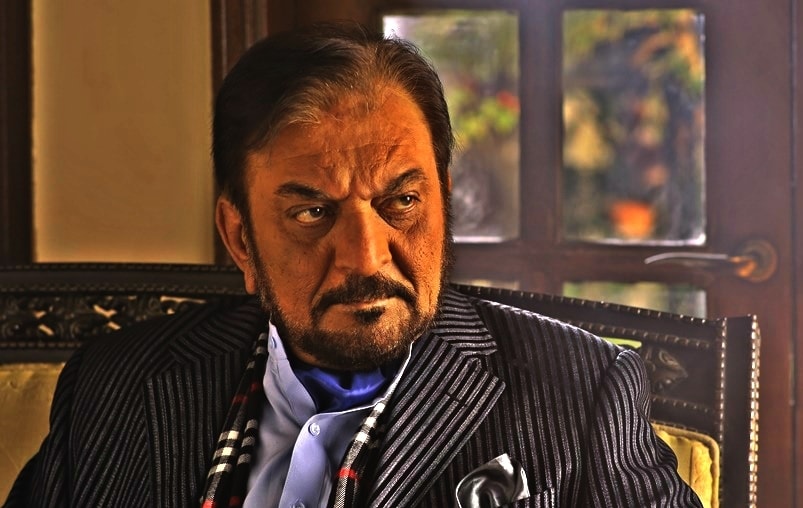Review: 'Diyar-e-Dil' opens with a bang and is a visual treat

Diyar-e-Dil or 'territory of the heart' is Hum TV and MD production’s latest offering after Sadqay Tumhare. Continuing the trend of dramatizing popular novels, this serial is based on a book by Farhat Ishtiaq, the writer of Hum TV’s blockbuster Humsafar.
It was evident from the drama's teasers and promos that this was a big budget project, with a high profile cast and much attention lavished on every detail by creative head Momina Duraid.
The hilly terrain of Baltistan serves as the perfect back drop to this emotionally charged and character-driven story. Director Haseeb Hassan and DOP Zaib Rao have done an outstanding job of capturing the powerful, raw beauty of the landscape.
| |
From the first episode this serial promises to be a visual delight as sweeping panoramas and well framed scenes of family life play off each other, deftly underscoring the passions of each character. Similarly judicious use of the haunting but playful soundtrack keeps the viewers focused on the screen.
The opening sequence:
This family saga introduces us to Agha Jan, played by Abid Ali, the patriarch, a father whose love and affection demand obedience from his children.

He describes himself as a man who plays from the heart rather than logic and it's his wish that his eldest son Behroze (Mikaal Zulfiqar) marry his brother’s daughter Arjumand (Hareem Faruqi).
As shown in most cases, their engagement was accepted without question in the small bubble constituting his family’s world but things take a turn when Behroz meets someone outside that rarefied sphere, a simple girl from Lahore, Roohina (Sanam Saeed), and refuses to comply with his father’s wishes.
What makes Diyar-e-Dil different from the rest?
Although a story too familiar, the characterisations and Haseeb Hassan’s execution make it all seem fresh and new. There is an almost epic or cinematic flavour to this serial which serves as a welcome change after his lacklustre drama Ahista Ahista last year. Here we see the Lux Style Award winning director of Nanhi is back — he skillfully weaves a dozen characters and their motivations into this vibrant tapestry. The first episode is sharply edited and the action moves at a pace fast enough to keep the viewer interested without leaving any gaps in the narrative.
From this episode it would be easy to think this story is about Behroz and Roohi.
The novel, however, tells the story of the generation that comes after them — Wali (Osman Khalid Butt) and Farah (Maya Ali) — and talks about Behroze and Roohi in flashback style.
The serial has chosen to follow an easier, linear route, fattening up their story and giving it equal prominence — connecting past and present in the circle of life. Wali is seen hazily in the very first scene, with Osman Khalid Butt’s as narrator, before we are introduced to the past that decided his future.
Is the cast living up to the expectations?
Sanam Saeed is lovely as always but this softer persona of Roohi makes her even more relatable, allowing the audience to sympathize with her character; a girl who inadvertently comes between a man and his family.
Meekal has finally chosen a role with depth as Behroz after a series of pot boilers. He looks amazing and reminds viewers again that he is the talented actor who could play the devil-may-care Shamraiz from Kuch Pyar ka Pagalpan or the self-absorbed, brooding Salman Ansar from Sheher-e-Zaat. The veteran Abid Ali is a great as Agha Jan, he is the anchor and depth this story cannot do without.
While Mikaal is the spoiled, wilful elder son, Ali Rahman plays Sohaib, the younger, gentler and more caring brother. Rahman manages to impress throughout and even his slightly theatrical Pathan accent is endearing. Hareem Faruqi successfully manages to play the character of sweet Arjumand with authenticity but avoids the cloying goodness or shallowness such a ‘convenient’ character might exhibit. Similarly Eshita Sayed provides an interesting contrast as the more independent-minded daughter of Agha Jan’s friend to the other female characters.
The lows:
There are very few negative points to this much anticipated serial. As this is generational story it might have made more sense to give more us a concrete glimpse of the younger generation, Wali and Farah; perhaps by keeping to Farhat Ishtiaq’s actual novel which begins with a highly cryptic conversation between these two.
It would certainly have brought a thrilling edge to have started off the serial with such a dramatic punch.
It might also have been more genuine for everyone to decide on one accent: Agha Jaan, his brother and Sohaib have strong Pushto accents while everyone else seems to be speaking fluent Urdu.
As with any excellent start the only fear is whether team Diyar-e-Dil can maintain the standards it has now set. This serial is a must watch for any drama fan. Farhat Ishtiaq is a great storyteller but this time she has honed her script-writing skills too and Haseeb Hassan has managed to translate this with seamless ease to our screens.
Sadaf Haider is a writer at dramapakistani.net.
An earlier version of this review stated Mikaal Zulfiqar's character as Beyzaad instead of Behroze. The error is regretted.